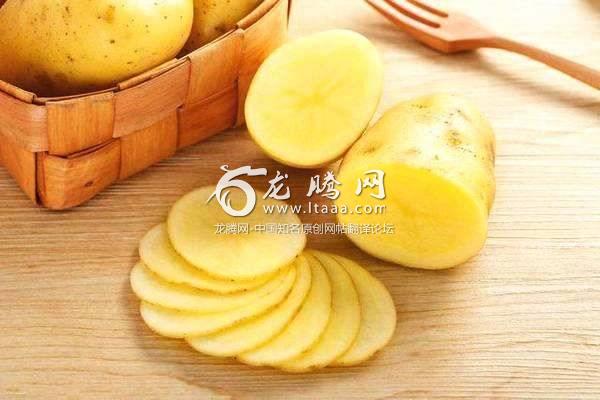欧洲最大的土豆危机 [英国媒体]
欧洲面临着一场马铃薯危机。欧盟每年的土豆收成约5300万吨。土豆最大生产国德国通常产出1000万到1200万吨土豆。但是由于夏季干旱,土豆已经收获了。
Europe’s great potato crisis
欧洲最大的土豆危机
EUROPE faces a potato crisis. Around 53m tonnes of spuds are harvested in the EU each year. Germany, the biggest producer, usually digs up 10m-12m tonnes. But thanks to a dry summer, the tubers have come a cropper.
欧洲面临着一场马铃薯危机。欧盟每年的土豆收成约5300万吨。土豆最大生产国德国通常产出1000万到1200万吨土豆。但是由于夏季干旱,土豆已经收获了。
On September 26th Germany’s agriculture ministry announced a harvest 25% smaller than usual. This year’s spuds are littler and denser than normal. Belgians are feeling less than chipper over rumours that their beloved frites may now be one-third shorter as a result. But these fears are small fry compared with the wider implications.
9月26日,德国农业部宣布土豆减产25%。今年的土豆比往常更小更密集。有传言称比利时人钟爱的薯条因此减少了三分之一,比利时人对这些传言感到难过。但与土豆减产的更广泛影响相比,这些担忧无足轻重。
Climate change is at the root of the problem. “Farmers noticed that wet and dry periods are getting closer together,” says Katja Börgermann of the German Farmers’ Association. In 2003 Europe experienced a “once in a century” drought. Fifteen years later it has endured another. It is hard for farmers to adapt fast enough. They could develop better irrigation systems, and new crop strains could be bred to resist drought. But such things take time.
气候变化是问题的根源。德国农民协会的Katja Börgermann表示,“农民们注意到雨季和旱季出现的时间越来越接近。”2003年欧洲遭遇了“百年一遇”的干旱。2018年,它又遭受了一次同样的干旱。农民们很难快速充分适应这一变化。他们可以开发出更好的灌溉系统,研制出抗旱的新作物品种。但是这些事情都需要时间。
Carb-lovers may have to pay more for their mash. This has happened before. In 1976 potato production fell by roughly 40% as temperatures soared. Prices soared with them—by Christmas, potatoes in Britain cost six times their normal price. These days consumers have more choice, and other starchy options such as pasta and noodles have reduced demand for the humble spud. But bad weather has also caused wheat yields to fall in Europe this year, and previous reductions in the acreage devoted to growing potatoes mean there were fewer tubers to go round in the first place. Already, potato prices have risen in Spain. McCain Foods, a potato-processor, has raised its prices by 20%. Consumers who know their onions are cheesed off.
钟爱碳水化合物的人可能要为他们的口腹之欲付更多的钱。这种情况此前曾经发生过。1976年,随着气温飙升,土豆产量下降了约40%。土豆价格也应声上涨——到圣诞节时,英国的土豆价格已经是平时价格的六倍。如今,消费者有了更多的选择,并且其它的淀粉类食物如意大利面食和面条对那不起眼的土豆的需求已经降低了。但是糟糕的气候也导致欧洲今年的小麦产量下降,之前土豆种植面积的减少首先就意味着可供种植的薯类也减少了。西班牙的土豆价格已经上涨。土豆加工商麦凯恩食品有限公司已经将产品价格上调了20%。那些知道内情的消费者都很恼火。
A quick fix could be found through trade. Already, potato trading between EU countries is common, but most of the rice eaten in Europe is imported, whereas only a small proportion of potatoes come from outside the EU. Some say that more open markets would ensure that if the harvest fails in one country, appetites could still be met. But try telling that to the guardians of the common agricultural policy in Brussels. They see any market opening as the thin end of the wedge.
可以通过贸易找到快速的解决办法。欧盟国家之间的土豆贸易已经十分普遍,但是欧盟所食用的大米大多数是进口的,然而,只有一小部分的土豆是从欧盟以外国家进口的。有些人表示,如果一个国家的收成不好,那么更加开放的市场将确保该国人民的需求得到满足。但是不妨将这些告诉布鲁塞尔的那些共同农业政策的捍卫者们。他们将市场的开放看做是会产生重大后果的小事。
版权声明
我们致力于传递世界各地老百姓最真实、最直接、最详尽的对中国的看法
【版权与免责声明】如发现内容存在版权问题,烦请提供相关信息发邮件,
我们将及时沟通与处理。本站内容除非来源注明五毛网,否则均为网友转载,涉及言论、版权与本站无关。
本文仅代表作者观点,不代表本站立场。
本文来自网络,如有侵权及时联系本网站。
阅读:
图文文章RECOMMEND
热门文章HOT NEWS
-
1
最近,新冠肺炎疫情在日本有扩大的趋势,有专家呼吁日本应当举国行动起来,共...
- 2
- 3
- 4
- 5
- 6
- 7
- 8
- 9
- 10
推荐文章HOT NEWS
-
1
最近,新冠肺炎疫情在日本有扩大的趋势,有专家呼吁日本应当举国行动起来,共...
- 2
- 3
- 4
- 5
- 6
- 7
- 8
- 9
- 10











